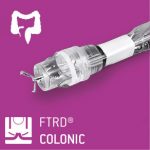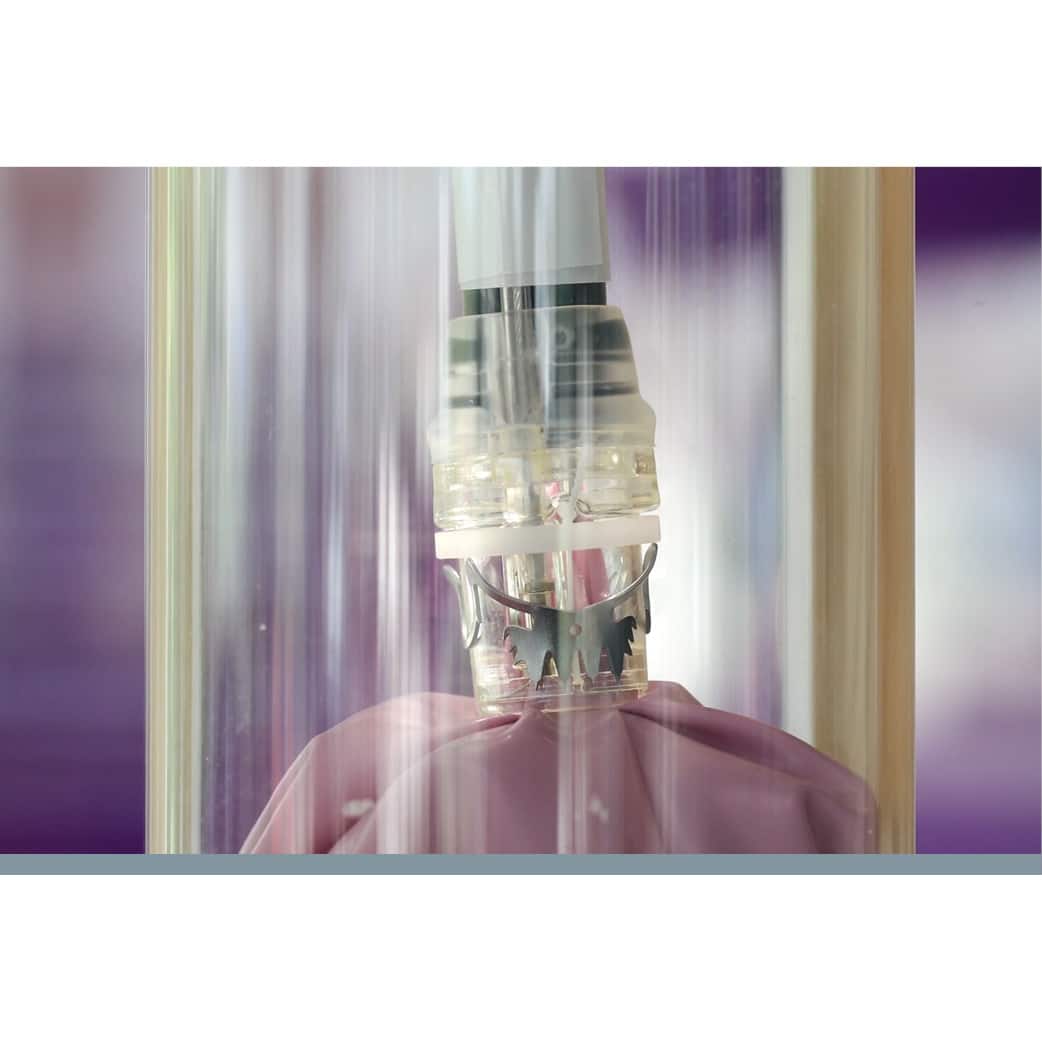Hybrid-EFTR – An essential treatment alternative for patients
Hybrid-EFTR offers an essential treatment alternative for patients with large non-lifting colorectal adenomas
The largest single-center experience on Hybrid-EFTR to date shows that combined EMR/EFTR is safe and effective for advanced (≥ 25 mm), non-lifting colorectal adenoma which cannot be approached by EMR or EFTR alone. In 75 patients, a technical success rate of 100 % with a macroscopically complete resection of 97.3 % was demonstrated. Major adverse events were observed in two cases (2.7 %).
Endoscopic full-thickness resection (EFTR) using the FTRD® System has emerged as the established method for managing specific cases of non-lifting colorectal adenoma; however, the size of the tumor remains a constraint. Nonetheless, for larger lesions, a combination of EMR and FTRD can be considered. The analysis of Meier et al., Department of Gastroenterology and Oncology, Klinikum Ludwigsburg, Germany, presents the most extensive experience to date of combined EMR/EFTR (referred to as Hybrid-EFTR) in patients diagnosed with advanced non-lifting colorectal adenoma that cannot be effectively addressed by either EMR or EFTR alone.
The study was a single-center retrospective analysis of consecutive patients who underwent Hybrid-EFTR for large (≥ 25 mm), non-lifting colorectal adenomas at the Klinikum Ludwigsburg between January 2017 and September 2022. All adenomas of the entire colorectum were included (incl. adenomas infiltrating the appendiceal orifice without evidence of invasive carcinoma). Primary outcomes were technical success (successful advancement of the FTRD to the lesion with consecutive successful clip deployment and snare resection) and macroscopic complete resection. Secondary outcomes involved procedure time, adverse events, subsequent need for surgery and macroscopic/histologic assessment during endoscopic follow-up. Endoscopic resection was performed in two steps: (1) standard piece-meal EMR was used to reduce tumor size; (2) the residual non-lifting part was resected by the FTRD.
In total, 75 patients (66.6 % men, mean age 72.9 years) were included in the study. The mean size of the lesions was 36.5 mm (range 25–60 mm), with the majority (66.6 %, 50/75) located in the right-sided colon. Six lesions involved the appendiceal orifice. The technical success rate was 100 % (75/75) with a macroscopic complete resection rate of 97.3 % (73/75; R0 resection could not be proven due to piece-meal resection). Mean procedure time was 83.6 minutes. Adverse events directly related to the procedure were observed in 6.7 % of cases (5/75), leading to surgery in only one patient with appendicitis (1.3 %, 1/75). Peri-interventional bleeding (n=3) was managed successfully by endoscopy. These cases were considered to be minor adverse events (4 %, 3/75) as they did not lead to further bleeding or require transfusion. Two cases of appendicitis were classified as major adverse events (2.7 %, 2/75). One patient was successfully treated with antibiotics and one patient underwent appendectomy. Histological examination indicated the presence of T1 carcinoma in 16 % (12/75) of cases. Follow-up endoscopies were conducted in 93.3 % (70/75) of patients (mean follow-up time: 8.1 months, range 3–36 months), revealing the absence of residual or recurring adenoma in 88.6 % (62/70) of cases. Recurrences (11.4 %, 8/70) were treated with endoscopic measures (EFTR or EMR).
The findings suggest that Hybrid-EFTR is a safe and effective approach for managing advanced colorectal adenomas that cannot be treated with EMR or EFTR alone. Hybrid-EFTR essentially extends the scope of EFTR application in selected patients. During the period at the Klinikum Ludwigsburg, the combined technique proved to be clinically relevant as it was performed in 19.8 % (75/378) of polyps ≥ 25 mm.
Meier B, Elsayed I, Seitz N, Wannhoff A, Caca K. Efficacy and safety of combined EMR and endoscopic full-thickness resection (hybrid EFTR) for large nonlifting colorectal adenomas. Gastrointest Endosc. 2023 Sep;98(3):405-411. doi: 10.1016/j.gie.2023.03.020.
 |
 |


 English
English  Français
Français 